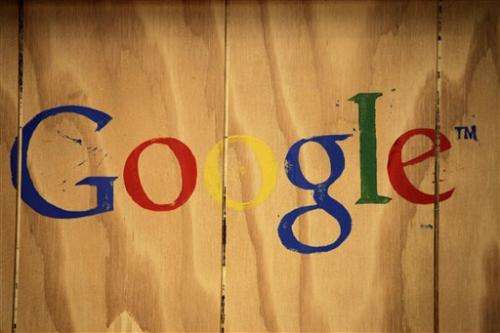Critics blast Google's European antitrust offer

Google's latest offer to settle a European investigation into the alleged abuse of its dominant positions in online search and advertising leaked out Wednesday, with one competitor calling it "a new form of abuse."
The European Union's competition commissioner, Joaquin Almunia, has praised Google's latest proposal as a "significant improvement" from earlier versions and appears to be near a decision to approve it. But Google competitors and some consumer groups are fiercely critical of the plan.
John Simpson of Consumer Watchdog, the U.S. consumer rights group that circulated the 96-page document, which is dated Oct. 21 and marked confidential, said he did so because it was in the public interest.
"(The plan) does nothing to fix the underlying problem of how Google manipulates search results to unfairly advantage its own services like Google Shopping or Google Maps over competitors," Simpson told The Associated Press in a phone interview.
Screenshots of how search results would look under Google Inc.'s proposed settlement show the Internet giant would still give its own services pre-eminent placement in commercial searches such as for hotels, restaurants or plane tickets. Three competitors could bid to display their services, complete with logos, in subordinate slots. Both Google's and competitors' offerings would be labeled as "sponsored" results.
Regular search results would be displayed lower down on the page.
Google spokesman Al Verney on Wednesday repeated the company's position that opponents of the deal are seeking to entangle Google in never-ending legal disputes.
One Google competitor, Shivaun Raff, founder of Foundem.com, a British-based website that offers shoppers price comparison, said she had refrained from discussing the details of Google's plan up until now on instructions from the EU Commission. But on Wednesday she blasted the idea of Google charging rivals for links placement as "a devastating new form of abuse."
Raff said it was "inconceivable" that the EU Commission would sanction the Google strategy. A spokeswoman for Almunia's office declined to comment.
The European Commission began investigating Google in 2010. Almunia has said he prefers to reach settlements with technology companies, rather than fine them, because large fines hurt companies but don't help consumers in a timely way.
Microsoft paid around 2.2 billion euros (currently $3 billion) in fines during the 2000s in a decade of conflict with the EU Commission over abuses of its market dominance. Many of those issues now appear irrelevant, given the fast pace of technological change.
The U.S. Federal Trade Commission investigated Google for similar reasons but in January decided not to act, saying the company's search displays—even if they harm competitors—are aimed at pleasing users, not stifling competition.
Any restrictions that European regulators place on Google would be valid only in the European Economic Area—a market of some 500 million people. Still, Google's share of that search market is even higher than in the U.S.—at 80 percent of the total market and over 90 percent in some European countries compared to below 70 percent in the U.S.
John Phelan, spokesman for The European Consumer Organization, said "mere labeling" of Google's sponsored results wouldn't be enough to promote competition. He hoped that Almunia does not rush toward a bad settlement.
"As matters stand, Google can all too easily shepherd consumers toward goods and services not of their own preference," he said. "We strongly believe that guiding principle here should be one of non-discrimination among search results, so that European consumers are presented with true choice."
Simpson of the U.S. Consumer Watchdog agreed.
"We think the FTC was wrong in closing the investigation," he said. "If the Europeans can do it, more power to them."
More information: On the Internet: www.consumerwatchdog.org/resou … esettlment102113.pdf
© 2013 The Associated Press. All rights reserved.


















